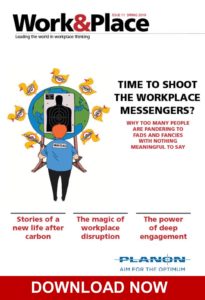- WeWork’s leasing model consists of using single-purpose entities to take out leases.
- The coworking giant doesn’t offer guarantees for its leases and makes up for it by paying a premium.
- This strategy is scaring off cautious REITS who believe no guarantees depreciate the value of a building because of the risk factors that such transactions imply.
CoStar reported earlier today that “WeWork Strategy Shows Cracks as Major Canadian REIT Refuses to Rent”. Allied Properties Cities, one of Canada’s largest real estate investment trusts has refused to lease space to the coworking giant citing “lack of lease guarantees” that could potentially affect a building’s valuation.
During a panel discussion at the Real Estate Forum in Toronto on the needs of office unit occupiers, Tom Burns, COO of Allied Properties REIT, said that the company has entered into business partnerships with flexible workspace operators that can offer guarantees on the leased property.
“It’s all about the covenant, that’s what we are looking for,” Burns said during the panel. He added that Allied Properties Cities has realized that it should be partnering with coworking companies but that it will only do so if it can get guarantees. In the case of WeWork, Burns stated that “We may have been able to do some deals with WeWork had we been able to get some covenant at some point.”
WeWork’s leasing model consists of using single-purpose entities to take out leases. These subsidiaries are often registered as LLCs and they cut WeWork’s risk by not making the company liable. According to a Financial Times analysis, this model, in theory, allows WeWork subsidiaries to walk away from leases without recourse to the parent company (which in this case is WeWork Cos.).
The Latest News
Delivered To Your Inbox
WeWork typically takes 10 to 15 year leases that are “secured by corporate guarantees that might cover only the first year of a 15-year lease”. This means landlords are placed in a risky position; even if the company “is on the hook for some $18bn in lease payment agreements, the company only guarantees up to $1.9bn”, the Financial Times article states.
Not only are there no financial guarantees, but also WeWork could choose to close a location and wriggle out of the contract without it being legally liable for a broken lease.
What WeWork is doing is common practice in the flexible workspace industry. Typically either operators pay a premium on rent for less guarantees or they pay lower rents with guarantees. Flexible workspace companies also put a dollar amount cap on their guarantees. However, WeWork’s case seems to stand out as they are a high-growth company that’s become London and Manhattan’s largest office occupier.
They are a fast growing company leasing space at the top of the market and they are paying a premium for it; they are offering an enhanced yield to property owners and companies. It’s a risky position as they are paying over-market prices and they are doing it in a market that is swinging up. If, or when, the market swings down, WeWork will find itself in a position where it will have to go back to landlords and convince them to renegotiate lest they be forced to close their locations.
An unguaranteed lease from a major company like WeWork, even at a high yield depreciates the value of a building because of this high-risk factor.
Author: Cecilia Amador
Originally Published on December 4, 2018 at 10:44AM
Article published originally via AllWork.Space https://allwork.space/2018/12/why-wework-is-scaring-off-cautious-reits/




